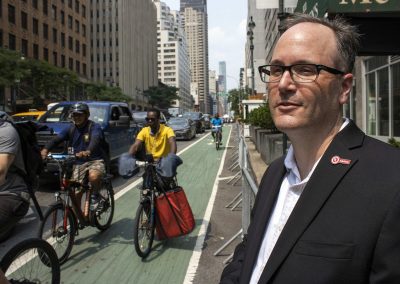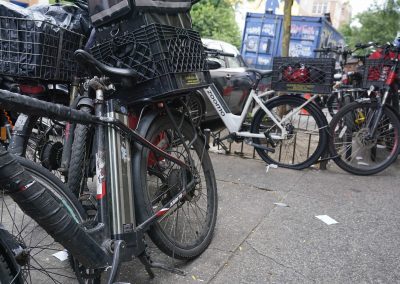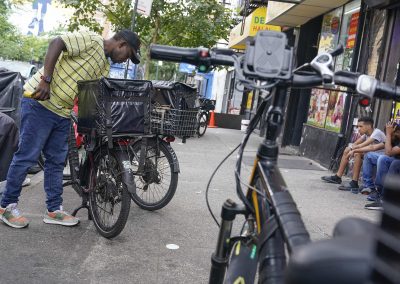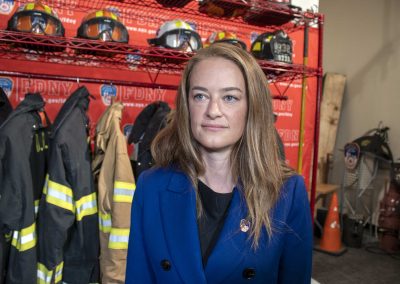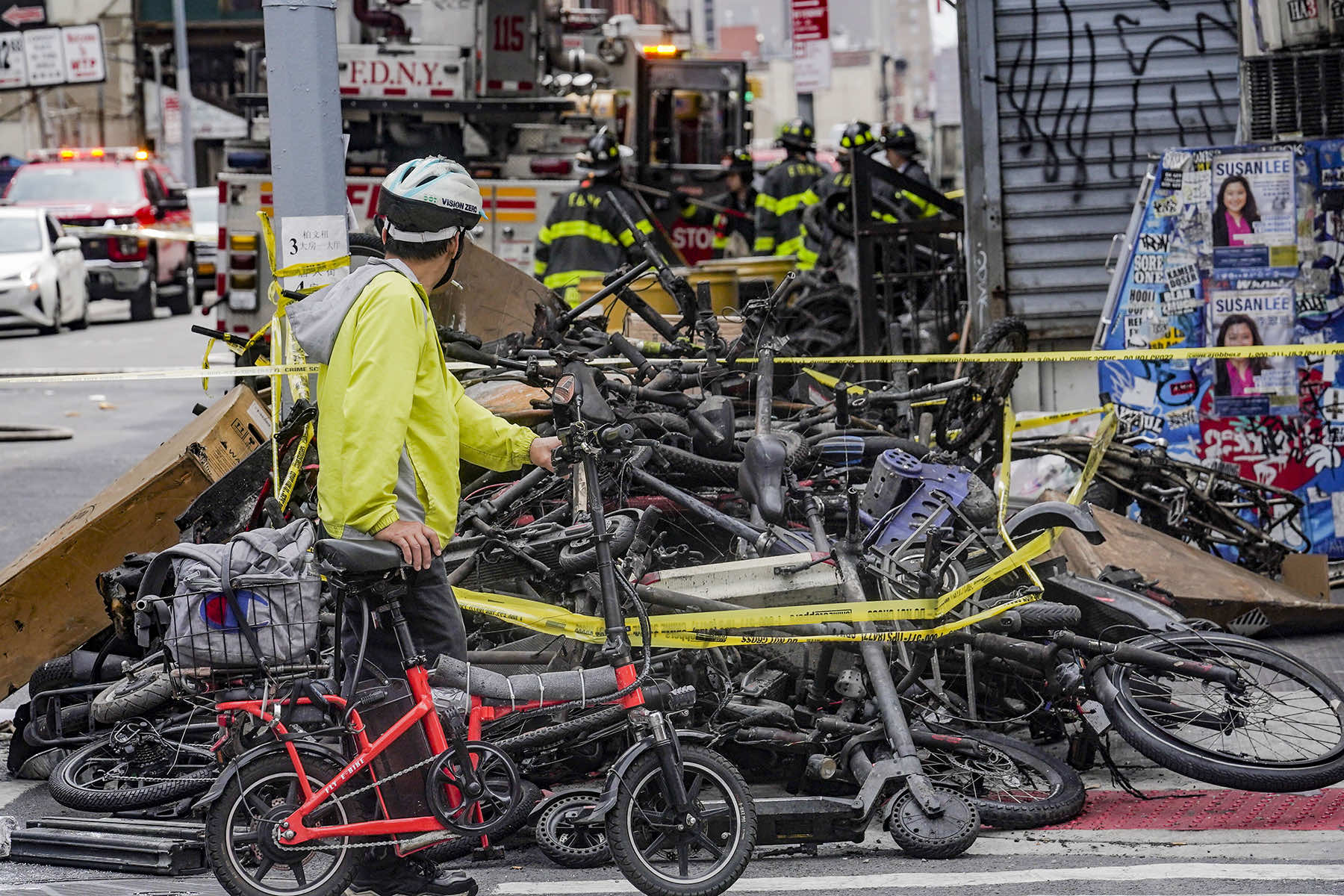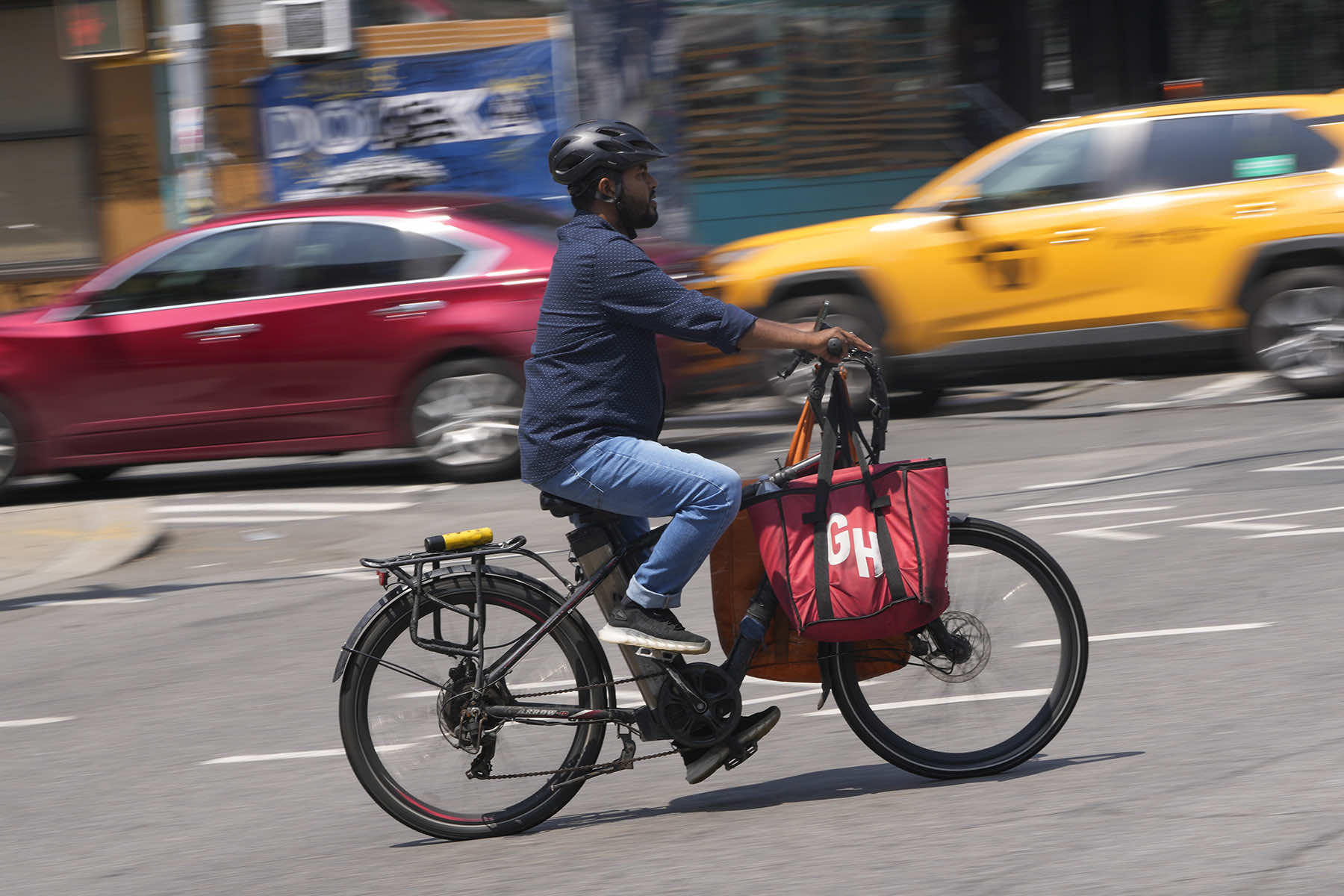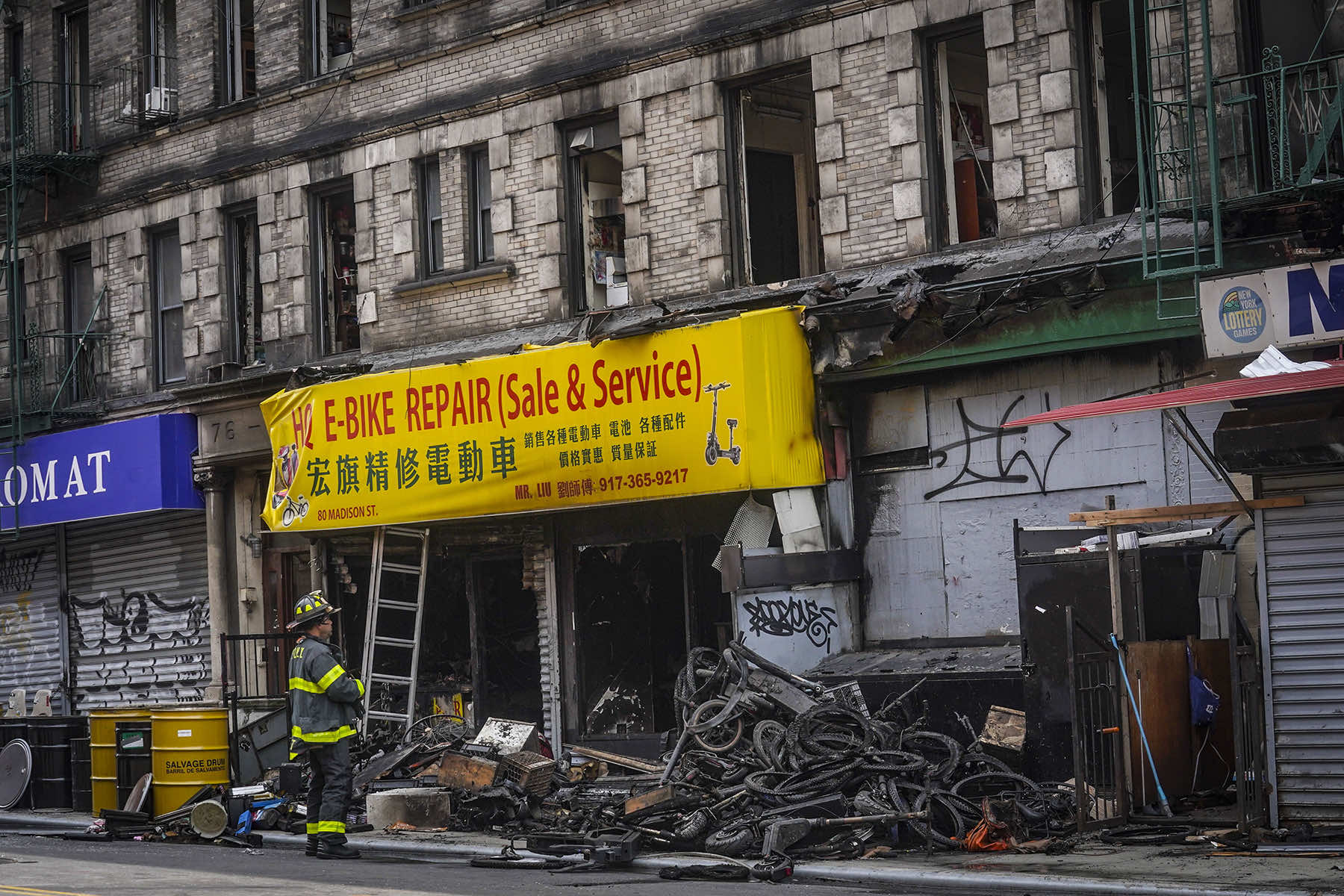
The explosion early on a June morning ignited a blaze that engulfed a New York City shop filled with motorized bicycles and their volatile lithium-ion batteries. Billowing smoke quickly killed four people asleep in apartments above the burning store.
As the ubiquity of e-bikes has grown, so has the frequency of fires and deaths blamed on the batteries that power them, sparking a push to better regulate how the batteries are manufactured, sold, reconditioned, charged, and stored.
Consumer advocates and fire departments, particularly in New York City, are urging the U.S. Consumer Product Safety Commission to establish national safety standards and confiscate imports that do not comply with regulations at the border, so unsafe e-bikes and poorly manufactured batteries can be taken off the streets and out of homes.
The matter comes under discussion when the commission convenes a public hearing late July in Washington.
“We’ve been sounding the alarm for months,” New York City Mayor Eric Adams said a day after an exploding battery ignited the Chinatown e-bike shop fire last month. “We need real action, not only on the state level, but on the federal level.”
With some 65,000 e-bikes zipping through its streets, more than any other place in the U.S., New York City is the epicenter of battery-related fires. There have been 100 such blazes so far this year, resulting in 13 deaths, already more than double the six fatalities last year.
Nationally, there were more than 200 battery-related fires reported to the commission — an obvious undercount — from 39 states over the past two years, including 19 deaths blamed on so-called micromobility devices that include battery-powered scooters, bicycles, and hoverboards.
New York’s two U.S. Senators, Democrats Chuck Schumer and Kirsten Gillibrand, introduced legislation last month that would set mandatory safety standards for e-bikes and the batteries that power them.
Because mandatory standards do not exist, Schumer said, poorly made batteries have flooded the U.S., increasing the risk of fires.
Earlier this year, New York City urgently enacted a sweeping package of local laws intended to crack down on defective batteries, including a ban on the sale or rental of e-bikes and batteries that aren’t certified as meeting safety standards by an independent product testing lab.
The new rules also outlaw tampering with batteries or selling refurbished batteries made with lithium-ion cells scavenged from used units.
Meanwhile, New York City officials also announced they had received a $25 million federal grant for e-bike charging stations across the city — which fire marshals hope will reduce the risk of fires.
These are not typical fires, said New York City Fire Commissioner Laura Kavanagh. The batteries do not smolder, they explode.
“When they fail, they fail quite spectacularly,” said Kavanagh. “Once one of these ignites, there is a huge volume of fire, often so much so that the person in their home can’t get out and the firefighters can’t get in to get them.”
Such was the case in April when two siblings, a 7-year-old boy and his 19-year-old sister, died when a scooter battery ignited a fire in Queens.
Because of the fire hazard, some residential buildings have banned e-bikes. Last summer, the New York City Housing Authority sought to prohibit tenants in all of its 335 developments from keeping or charging e-vehicles in their units, only to back down a few months later after protests from delivery workers.
Use of motorized bicycles grew dramatically in the city during the COVID-19 pandemic as homebound people turned more to food delivery workers for meals and groceries.
With the rash of fires, delivery workers like Lizandro Lopez say they are now more mindful about precautions.
“As soon as the battery is charged, I disconnect it. You shouldn’t leave it charging for too long,” Lopez told The Associated Press in Spanish, “because if you leave it on there too long, that’s when you can cause a fire.”
Los Deliveristas Unidos, which represents app-based delivery workers in the New York area, estimates that fewer than 10% of e-bikes sold in the city have been deemed safe by a third-party evaluator, such as UL Solutions, a product testing company that certifies safety compliance for a host of electrical products, including Christmas lights and televisions.
E-bike batteries rely on the same chemistry to generate power as the lithium-ion batteries in cellphones, laptops, and most electric vehicles — products that were initially prone to overheating.
Tighter regulations, safety standards, and compliance testing drastically reduced the risk of fires in such devices, according to Robert Slone, the senior vice president and chief scientist for UL Solutions.
The same can happen with e-bike batteries, he said, if they are made to comply with established safety standards.
“We just need to make them safe, and there is a way to make them safe through testing and certification,” Slone said, “given the history that we’ve seen in terms of fires and injuries and unfortunately, deaths as well — not just in New York, but across the country and around the world.”
In London, the fire brigade says lithium batteries are the city’s fastest growing fire risk, with one fire erupting about every two days. Last year, there were a total of 116 fires involving e-bikes and e-scooters. At least one death has been attributed this year to an overheated battery.
In San Francisco, there have been at least 21 battery fires so far this year — compared with just 13 battery-related fires in 2017, according to an analysis by the San Francisco Chronicle.
Last year, some 1.1 million e-bikes were imported into the U.S., according to the Light Electric Vehicle Association, an industry group. In 2021, more than 880,000 e-bikes came into the country — about double from the year before and triple the number in 2019.
Many of the batteries now on the road are aftermarket products that are cheaply made and popular with delivery workers because of their lower prices.
“But that product is so cheap because it hasn’t gone through those design and testing. … It doesn’t meet a standard, so that’s why they’re inexpensive,” said Matt Moore, the general and policy council for the PeopleForBikes Coalition, which will also take part in the forum. “Even if there was a regulation, there will still be the ability of foreign sellers and manufacturers to send these products into the United States.”

